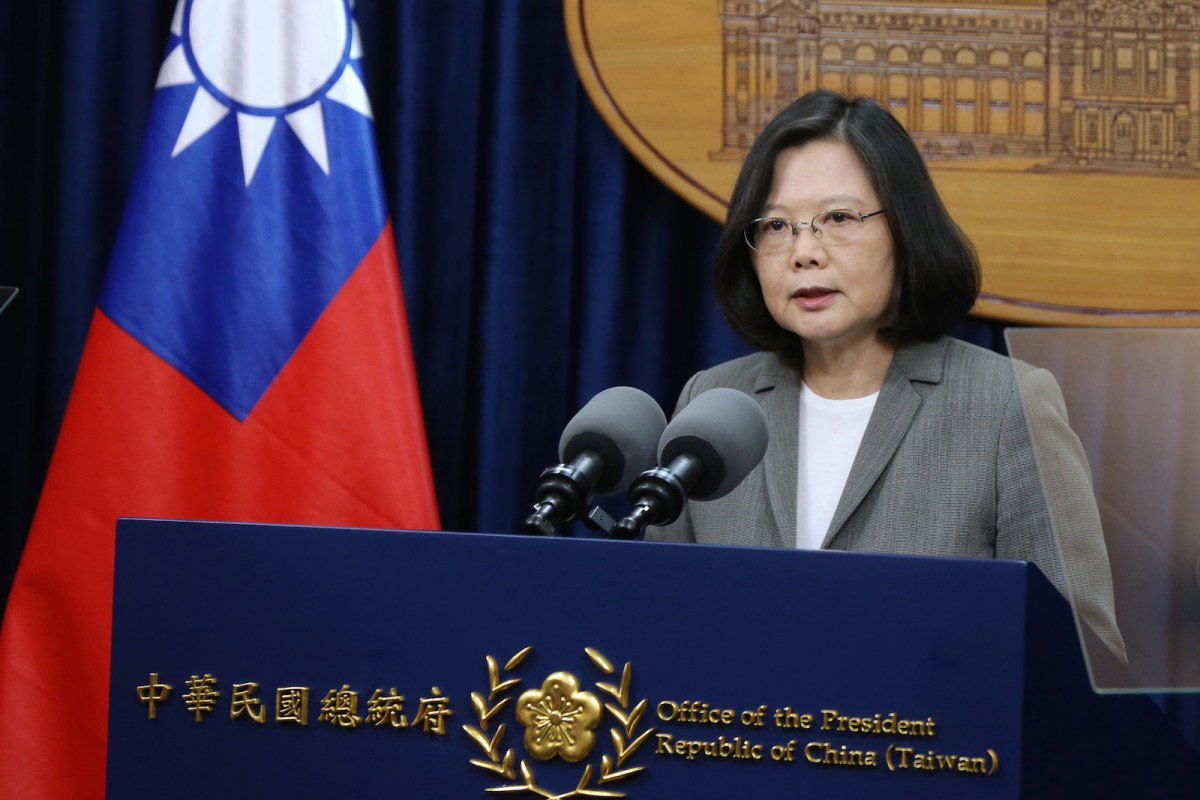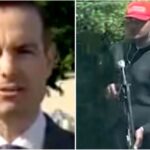Global Courant 2023-05-19 21:56:57
Taiwan is seeking a free trade agreement (FTA) with the United States after both sides signed a trade initiative to strengthen their economic ties.
The United States Trade Representative announced On Thursday, the American Institute in Taiwan (AIT) and the Taipei Economic and Cultural Representative Office in the United States (TECRO) concluded negotiations on the US-Taiwan Initiative on 21st Century Trade.
The agreement came just before the three-day G7 summit in Hiroshima, Japan, on Friday.
Taiwanese media said that Hsiao Bi-khim, representative of the Republic of China to the US, will visit Washington and sign the first phase of the trade initiative with her US counterpart in the coming weeks.
The first phase of this agreement covers five areas, including customs administration and trade facilitation, good regulatory practice, regulation of domestic services, anti-corruption and small and medium-sized enterprises (SMEs).
“This agreement is not only the most comprehensive trade agreement between Taiwan and the US since 1979, but also represents an important milestone for Taiwan’s economic and trade system to meet high international standards,” said the Office of Trade Negotiations, Taiwan’s Executive Yuan. say in a statement. “This is also an important step in completing the Taiwan-US Free Trade Agreement through building blocks.”
In January 1979, the US established diplomatic relations with the People’s Republic of China as the Chinese Communist Party claimed to form a united front with the West against the Soviet Union. It also ended its diplomatic ties with Taiwan, but has trade and cultural exchanges with the island under the Taiwan Relations Law.
Beijing Friday said it firmly opposes the US-Taiwan trade initiative.
“China firmly opposes all forms of official interaction with the Taiwanese region by countries with diplomatic ties with China, including the negotiation or conclusion of agreements with sovereignty implications and of an official nature,” said Wang Wenbin, a spokesman for the Chinese State Department, Friday.
Wang said the US should stop sending false signals to Taiwan’s separatists in the name of forming trade and economic ties with the island. He said the US should strictly adhere to the one China principle and the three joint real action communiqués.
Meanwhile, the Taiwan Affairs Office (TAO) of the State Council announced on Friday that China reopened its doors to Taiwanese tour groups with immediate effect.
“We warmly welcome Taiwanese compatriots to see the beautiful scenery and recent developments on the mainland,” said TAO spokesman Ma Xiaoguang.
The symbolic move is seen as Beijing’s attempt to increase exchanges with the island ahead of presidential elections in early 2024.
The Kuomintang (KMT) Central Committee, backed by the Chinese Communist Party (CCP), on Wednesday nominated New Taipei City Mayor Hou Yu-ih as the KMT’s presidential candidate with no party primaries.
Hou Yu-ih, Photo: Wikimedia Commons
Regional trade agreements
In September 2021, Taiwan formally applied to join the Comprehensive and Progressive Agreement for Trans-Pacific Partnership (CPTPP), but progress has been slow so far.
In May last year, the Biden administration launched the Indo-Pacific economic framework for prosperity (IPEF) but did not include Taiwan as a founding member. Founding nations include Australia, Brunei, Fiji, India, Indonesia, Japan, South Korea, Malaysia, New Zealand, the Philippines, Singapore, Thailand, and Vietnam.
Last June, the US and Taiwan said they would begin bilateral trade talks. The two sides met for the first time last November and held four-day negotiations in January this year with fruitful results.
“It is usually easier to negotiate a bilateral trade deal than a multilateral one involving more parties,” said Darson Chiu, a research fellow at the Department of International Affairs and Macroeconomic Forecasting Center, Taiwan Institute of Economic Research, said in January. “The US-Taiwan trade initiative will help Taiwan join the IPEF.”
On Friday, the US and Taiwan completed the first phase of the trade initiative. Taiwan’s minister without portfolio and trade representative John Deng said earlier this month that the second phase of the agreement, covering seven areas such as agriculture and labor, should be reached by the end of this year.
“This achievement is an important step forward in strengthening the economic relationship between the US and Taiwan,” US trade envoy Katherine Tai said Thursday. “We look forward to continuing these negotiations and concluding a robust and high-quality trade agreement that addresses the pressing economic challenges of the 21st century.”
Tai said U.S. companies will be able to bring more products to Taiwanese and Taiwanese customers while creating more transparent and streamlined regulatory processes that can facilitate investment and economic opportunities in both markets, especially for SMEs.
Criticism from Chinese experts
While Taiwanese President Tsai Ing-wen said Taiwan will be able to sign a free trade agreement with the US, Chinese commentators poured cold water on the idea.
“The Democratic Progressive Party (DPP)’s biggest intention in signing the so-called US-Taiwan trade initiative is to sell Taiwan to the US and maximize US benefits on the island,” said Kong Fan, a Sichuan-based reporter for Nouvelles. d’Europe, a pro-Beijing newspaper, writes in an article on Friday.
Kong says the DPP wants to use this deal to build stronger political and military ties with the US to advance Taiwan’s independence.
He says the US avoided discussing tariff waivers and market access, but emphasized its benefits. Rather, he says the US pressured TSMC to build foundries in Arizona and the Taiwanese government to buy US weapons.
On June 2 last year, Tseng Ming-chung, convener of the KMT legislative caucus, criticized the DPP for exaggerating the benefits of the US-Taiwan trade initiative, which makes no mention of FTA or CPTPP membership.
But after seeing the actual trade initiative on Friday, Tseng said the Tsai government should “sign it as soon as possible” and make good use of its close bilateral relations to resolve tariff and double taxation issues with the US.
Read: Beijing calms Taiwanese issues ahead of G7 summit
Read: US-Taiwan trade deals defy China’s warning
Follow Jeff Pao on Twitter at @jeffpao3
Similar:
Loading…




